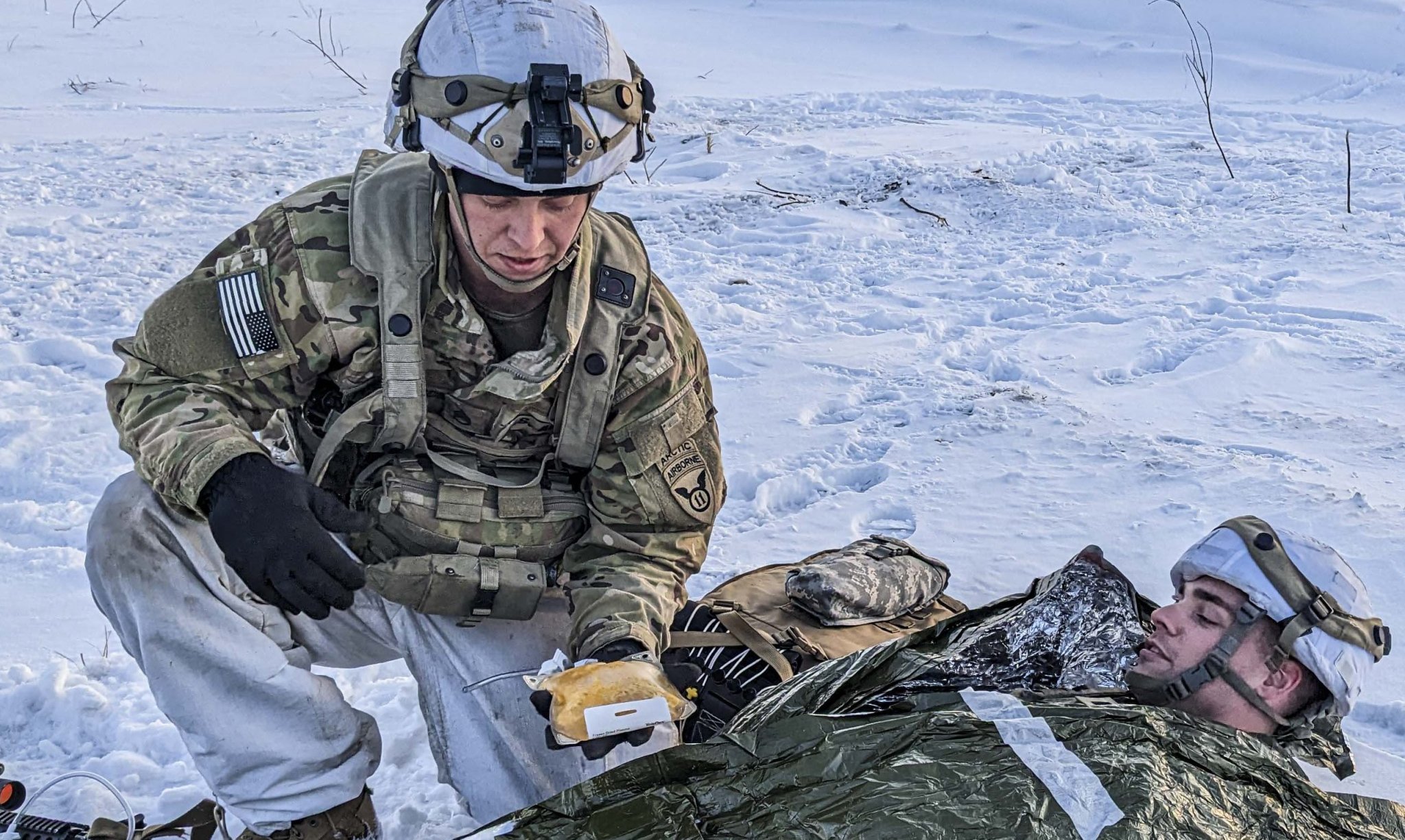

The U.S. Food and Drug Administration granted a new emergency use authorization on Aug. 8 to permit the use of a freeze-dried blood plasma by military medical personnel or those who work for the military in a deployed setting.
Dr. Steve Schauer, an Army emergency medicine physician for the past nine years, has actively advocated for freeze-dried plasma — technically known as octaplasLG powder — implementation military wide.
“This is kind of a big win for the [Department of Defense], because they have helped move this along in terms of working with Octapharma, who’s a European group,” Schauer said. “They’ve already had this in the market in other countries. Essentially, this is bringing their product into the U.S. footprint.”
Over the course of the post-9/11 wars, military medicine realized that blood products are vital for managing battlefield injuries, which often cause death by blood loss. Unlike other treatments like saline IVs, blood replacement restores blood clotting and oxygen-carrying capacity for the trauma patient.
“[Non-blood treatments] do nothing in terms of their oxygen delivery to the tissues, which is an important factor, and it definitely does nothing for your coagulation factors. So it’s not going to help you clot and it’s not going to help you deliver oxygen to the tissues, which are the two things you need,” Schauer said. “So, whole blood and other blood products, pre-hospital, does those things but it has a ton of logistical cost challenges.”
But blood must be stored in cold temperatures and spoils quickly even under the best of conditions. However, freeze-dried plasma has a two-year shelf life and can be stored at room temperature. Even when reconstituted, it remains usable for 8 hours.
Special operations combat medics have been carrying a French-made freeze-dried plasma for over a decade. Army Green Beret medics were cleared to carry the French version in 2011, with Marine Raiders given access in 2016 and Navy SEALs and Air Force special ops troops starting in 2017.
But low supplies of the French product kept it out of the hands of medics in larger conventional forces and other health providers. The new FDA approval is expected to lead to higher supplies, though the timeline on octaplasLG powder reaching a medic’s aid bag is unclear.
Subscribe to Task & Purpose today. Get the latest military news and culture in your inbox daily.
The FDA’s EUA status for octaplasLG powder is to be used in the treatment of hemorrhage or when blood clotting factors are compromised. Treatment is exlusively for those involved with military combat when plasma is not available or when the use of plasma “is not practical.”
“While FDP doesn’t fix the oxygen delivery problem, it does fix some of the coagulapothy problems, because you’re now restoring all their blood coagulation factors that they’ve just burned through trying to form a clot,” Schauer said. “And obviously, as they bleed out and lose volume, they also lose some coagulation factors. So rather than diluting all that stuff down, you’re now replacing the factors they’ve lost with human derived coagulation factors.”
However, octaplasLG powder is human-derived and can have similar transfusion reactions that blood products can cause, though Schauer said it’s a small risk because it’s designed to be “universally compatible.”
“FDP does go through a solvent detergent process, which removes a lot of those different things that may cause a reaction, like some of the white cells, and potentially reduce the risk of infection transmission,” Schauer said. “So, it’s going to be a much lower risk than when you’re using fresh products. But, it’s going to be similar type of stuff you need to watch out with whenever you’re plasma products.”
Schauer said the preparation of octaplasLG powder is simple and involves mixing the freeze-dried plasma with sterile water before giving it to the patient via intravenous or intraosseous administration. The training of medics will be relatively simple and build off of the skills they already have.
The latest on Task & Purpose
- Army fires Command Sergeant Major for Military District of Washington
- Navy tells aircrews to question ‘inappropriate’ call signs after lewd flight name
- Army fires Command Sergeant Major of Fort Belvoir cyber unit
- Seeking ‘warfighter mindset,’ Air Force basic trainees now carrying rifles through boot camp
- Marine training for winter Olympics bobsled team while in Iraq
